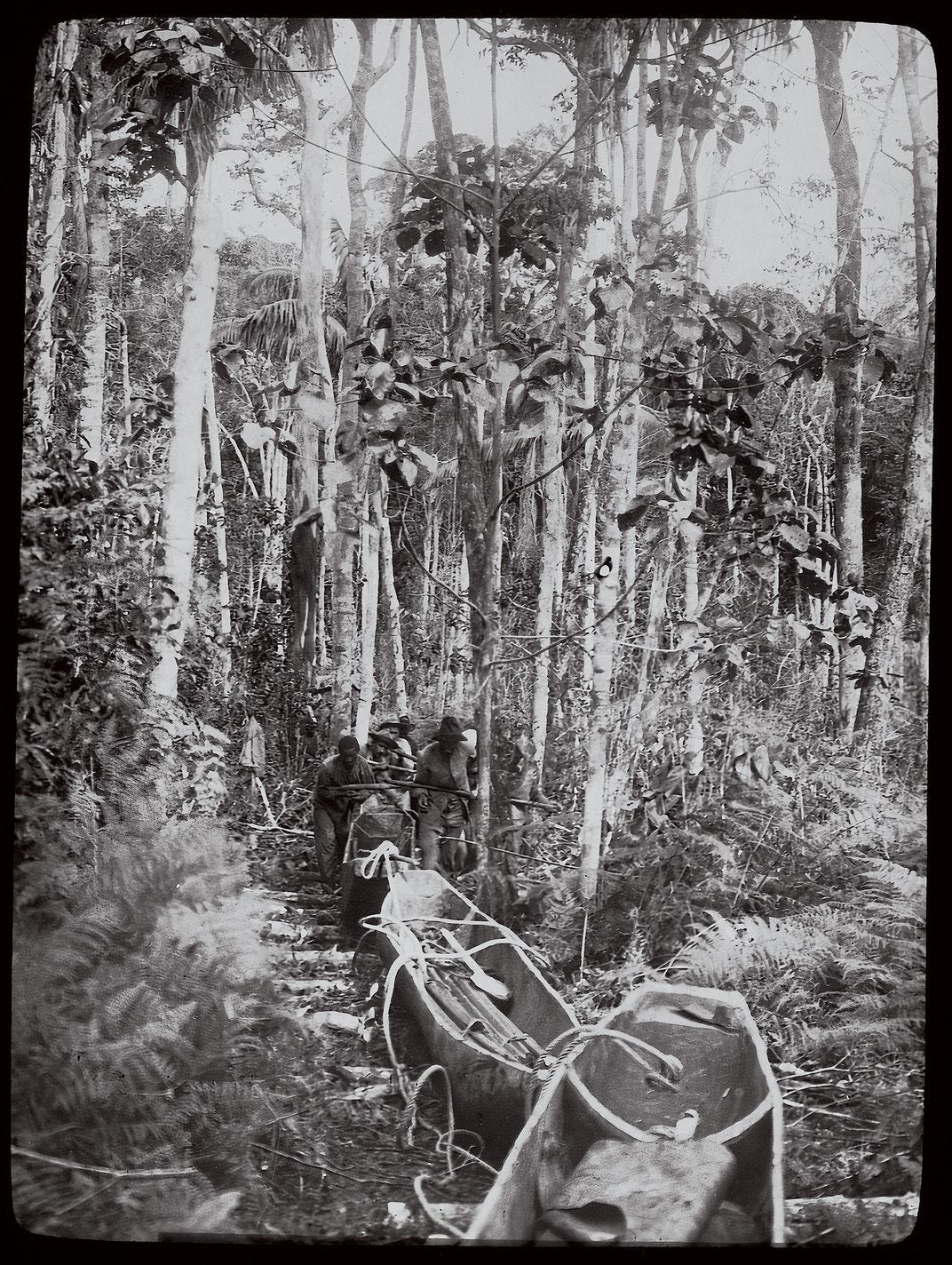
“I have already lived and enjoyed as much of life as any nine other men I know. I have had my full share, and if it is necessary for me to leave my bones in South America, I am quite ready to do so.” Theodore Roosevelt
If you really can’t do without biting flies, poisonous snakes, torrential rain, wasps, excessive humidity, clouds of mosquitoes, stinging gnats, thick, slippery mud, gigantic spiders, hostile, well-armed natives and the complete lack of all other creature comforts including motors, ice, electricity, clean water and dry socks, then you might be a candidate for an expedition on an uncharted river through the Amazon jungle.
For Theodore Roosevelt, such amenities were just his cup of tea. The erstwhile 26th President of the United States set his sights on having all that in 1913. He had retired from public service but was champing at the bit to get on with a dangerous venture through the forbidding environment of the Amazon jungle.
The expedition he went on is now recognized as one of the greatest feats of exploration in modern times which, undoubtedly, they never told you about in school. It was led by the number one explorer of the tropics in recorded history, 48-year old Brazilian Army Colonel Candido Rondon, who had spent 25 years cutting through South America’s jungle heartland, mapping, building roads, bridges, telegraph lines, founding settlements and and making peaceful contact with dozens of isolated native tribes, which he labored to protect.

I don’t know about you but this sort of thing gives me nightmares even in the daytime. I remember watching Tarzan movies as a kid and thinking how absolutely cool it would be to swing from tree to tree on a vine with almost no clothes on and to pal around with a chimpanzee and live in a treehouse with scantily-clad Jane and run through the jungle with my own special, blood-curdling yell.
I tried it once, out in the woods near my house but it shattered my expectations. For one thing, I was fully clothed, which took away some of the fun and all of the authenticity and, moreover, I was unable to find a chimpanzee or a vine that would hold me up and came back home speckled with chigger bites and poison ivy. Plus I didn’t have Jane.
Teddy picked the hardest one …
Of the five itineraries Rondon proposed, the most ambitious was to descend the Rio da Dúvida (“River of Doubt”) which he had first encountered in 1909 and had longed to explore ever since. Nobody knew how long the river was, or the kind of terrain it cut through, or where it ended up.
Roosevelt selected the itinerary that Rondon told him “offered the greatest number of unforeseen difficulties.” Taking the easy route was not in Roosevelt’s genes.
What Rondon proposed was exploration in its purest, most challenging form. The principal focus would be cartography, with the work to be carried out in terrain utterly unknown to either science or geography. He informed the ex-president that science was the objective, to the exclusion of Roosevelt’s penchant to wander off to shoot big animals. Roosevelt agreed to stay focused.
The expedition got under way on the morning of February 27, 1914 after weeks of slugging through swamps and thick jungle. It consisted of four, large dugout canoes and the men to paddle them along with Roosevelt’s 24-year old son, Kermit, who was already in Brazil as a railroad engineer. Kermit had promised his mother that he would “look after” his dad in case of an unpredictable fit of derring-do.

The trip was definitely not a walk in the park, with members forced to overcome all the hazards listed above as well as dangerous Indian tribes and wild white water rapids and waterfalls. On more than one portage, men had to fell trees, saw them into logs and lay the logs athwart muddy ground so that the heavy canoes could be “sledded” around an impassable stretch of rapids.
Find out what happened as the expedition continued by becoming a paid subscriber and receive he full issue each week.
Keep reading with a 7-day free trial
Subscribe to Eat Your History to keep reading this post and get 7 days of free access to the full post archives.







